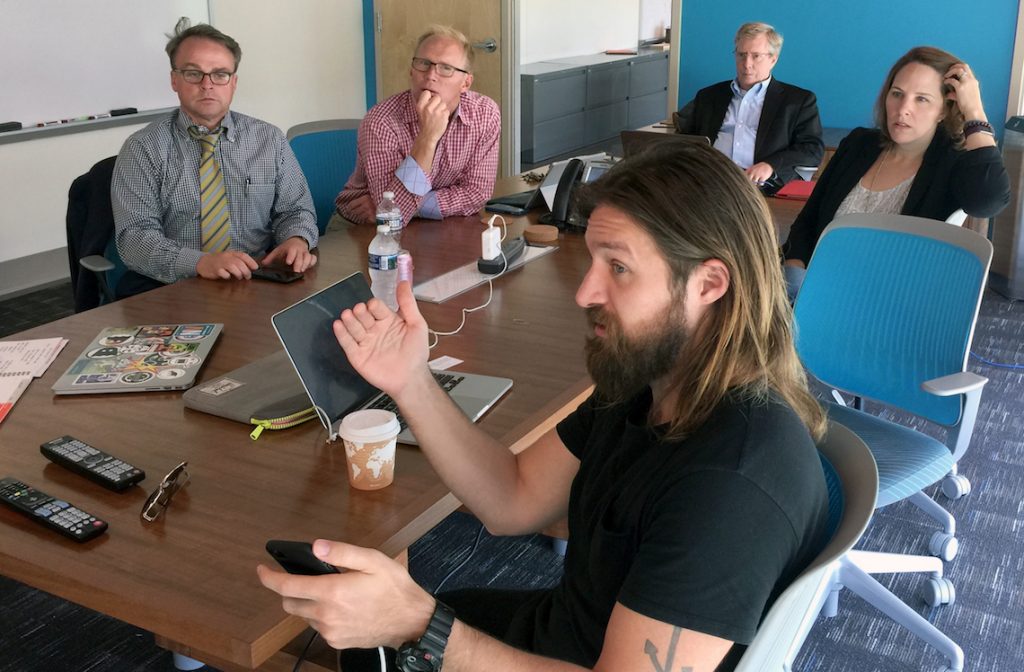With 10 days remaining before Demo Day 2017, members of the second cohort in the New Ventures Challenge and Accelerator in Winston-Salem are finalizing their products and beginning to attract customers.
On Sept. 8, the four idea-stage startups will pitch software solutions to a room of 200 potential investors willing to help them scale.
The program is one of few startup accelerators in North Carolina, and because many of Winston-Salem’s most influential investors are backing it, there’s been a strong response from startups across the state. More than 230 applications came in for five spots in 2017. Graduates from the first cohort have collectively raised more than $1 million in follow on financing, a key metric of success for accelerators. .
“The quality of the applications was far superior to 2016 so we are seeing growth both in the quality and quantity of folks that are interested in inception stage funding and this kind of development,” says Peter Marsh, co-founder of the New Ventures Challenge and Flywheel Coworking.
The New Ventures programs sprang from the momentum Marsh witnessed after launching Flywheel in the Wake Forest Innovation Quarter. In late 2015, he teamed with serial entrepreneur Joel Bennett (pictured top) in an effort to grow the Triad’s entrepreneurial ecosystem.
The initiative is a three-part program designed to build companies in the Triad that can improve the area’s economy by creating rapid returns on investment. It’s powered by an annual fund that attracted $375,000 from 34 investors this year, up from from $355,000 in 2016.
“They are wealth creators, people that are active with creating new wealth in the community in their own right as entrepreneurs,” Marsh says. “They’ve come together with a mission of helping companies get started with the resources that we are applying and then connecting them to the later stage capital investments they will need to grow and scale.”
The investors selected five companies to participate in this year’s accelerator program—one will launch publicly at a later date. Their criteria was simple.
“We’re focused on companies that can scale rapidly to over $50 million in revenue,” Marsh says.
Bennett manages the accelerator program and pushes company founders through an intense discovery process using lean startup methods. Once a minimum viable product is identified, cohort members search for customer validation and make sure their company offers a solution the marketplace is looking for.
The entrepreneurs spend the month leading up to Demo Day gaining paying customers and repeatable revenue.
A key piece of the Demo Day event is the pitches, Marsh says. It’s the first time these companies will share the traction they have achieved and plans for scaling to a larger enterprise.
Demo Day 2017 has some new features too.
Planners have given 29 local and regional startup companies demo space at the event. New Ventures also invited eight regional partners in the startup ecosystem across the state: Venture South, NC IDEA, Idea Fund Partners, Launch Greensboro, ExitEvent, Venture Café, The Launch Place, Wake Forest Innovation Quarter and the Center for Creative Economy.
Following the Demo Day events, participants and others in the community are invited to ExitEvent’s Startup Social at Wise Man Brewing.
In preparation for next Friday’s events, here’s a bit of detail on the four pitching startups:
Arxchitect
Nate Peaty and Adam Orsborn both have deep backgrounds in the hospital pharmacy industry, which is why they believe Arxchitect can deliver millions of dollars in cost savings within often Byzantine-era healthcare operations. The software is designed to integrate various streams of data, giving decision makers a single control panel.
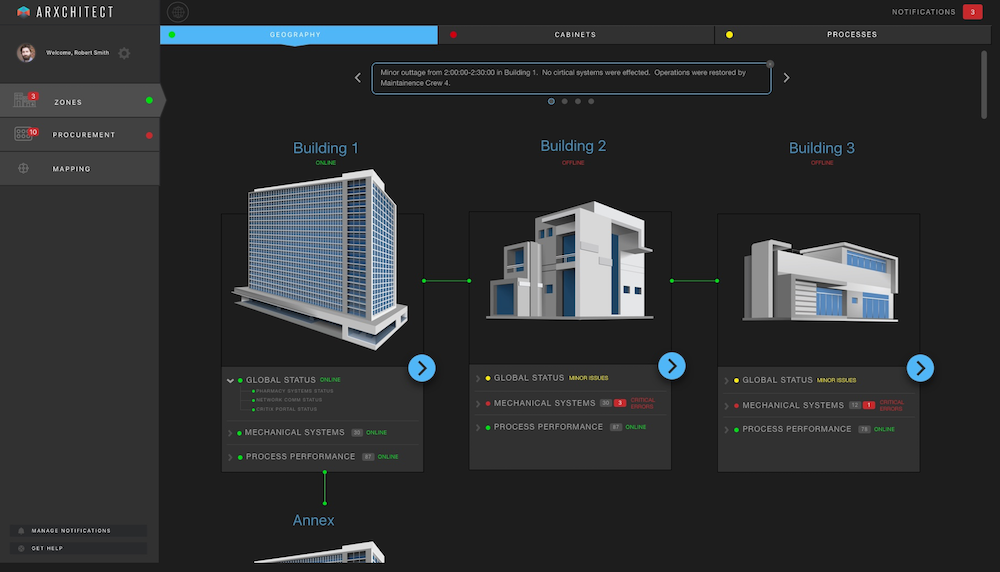
Peaty likens it to the cockpit controls of a jet pilot.
“What if the pilot had a separate login and password that controlled every major system on an airplane? Maybe we wouldn’t feel like flying is very safe or pleasurable,” Peaty says. Every major industry that uses a lot of automation has developed this type of dashboard, he adds.
Except the healthcare industry.
That’s where the co-founders of Arxchitect believe they can deliver value. Peaty says the team has identified $21 billion in spending that stems from 3.4 million data errors affecting 10 percent of people receiving hospital care.
Peaty believes Arxchitect will unify data that is trapped behind what he calls “anemic vendor reporting systems” and free decision makers by giving them actionable data.
The accelerator process has helped his team focus on delivering about $1 million in immediate operating expense and inventory improvements by focusing on procurement processes, automated dispensing cabinets and narcotic monitoring systems.
With a prototype system in place, the team is looking for seed capital in the $750,000 range in order to develop an enterprise solution that could be applicable in 5,500 hospitals across the nation.
FuneralInsider
Though Jay Requarth has 30 years of experience caring for people as a Winston-Salem radiologist, he knew very little about the after-death care process prior to starting his company.
That’s changed since he analyzed the $21 billion funeral services market and developed the idea behind FuneralInsider.
Requarth describes his software as similar to the Lending Tree model. His plan is to integrate data from thousands of funeral homes and cemeteries across the nation to deliver cost savings to consumers. A price list from 11,000 funeral homes serves as the core of his value proposition.
“Somebody is going to disrupt that market to benefit people and FuneralInsider is that disruptor,” Requarth says.
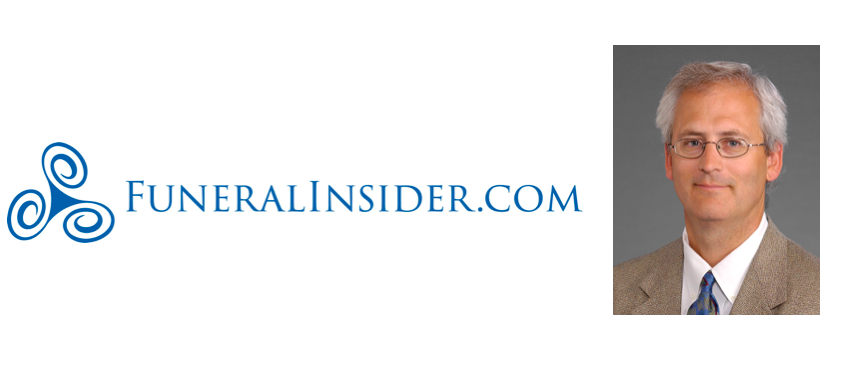
Funeral Insider will request bids from different funeral homes and allow families to choose a funeral home based on price, reviews, location and services. For a small fee, FuneralInsider expects to deliver 40-60 percent cost saving to consumers.
The company will offer three levels of services, ranging from a quote for local funeral services to negotiating final price. A top level plan will secure all funeral services for a consumer within their stated budget.
Requarth is also looking at ways to provide value to consumers in distant future need planning, which includes funeral services, last will and advance directives, medical power of attorney and insurance options.
WineAmp
Nick DeNitto learned the wine industry from the ground up since leaving a career in financial services a decade ago. He believes he can deliver value for wine growers by taking his wine club management experience into the mobile app marketplace.
WineAmp will help wineries focus their direct-to-consumer sales via a customized mobile app, helping consumers get more of a winery’s story, in addition to wine club perks, discounts and home delivery. He describes it as “going on offense.”
“Our apps make this relationship better for wineries and better for their end customers,” says DeNitto, who splits time between Los Angeles and the Raleigh-Durham area.
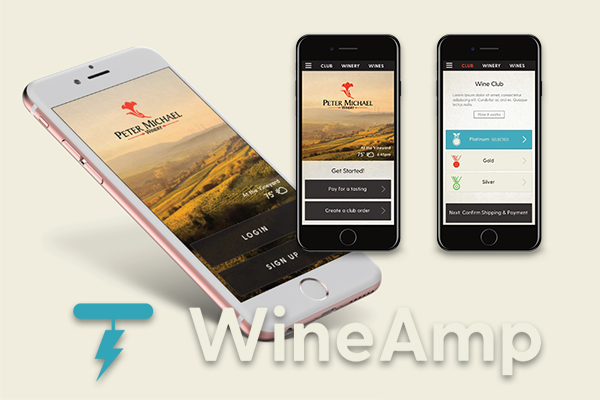
The DTC wine market is $2.3 billion out of a $27 billion off-site wine sales market. There are some 10,000 wineries in the United States, with 74 percent active in the DTC space coming from the small to midsized segment.
WineAmp will help growers focus on their strengths while improving sales with a quality consumer experience. The platform allows for customer engagement, increasing brand awareness while delivering all the convenience factors of Uber or Amazon Prime, DeNitto says.
His target is 50 wineries in the first year, with revenues coming from initial build, hosting and transaction fees. Revenues in the $500,000 range are possible out of the gate, he says.
Yanay
Curt Meinhold wanted to capture feedback from customers but he’s now doing so much more. His Yanay sentiment analysis software has evolved a great deal during the accelerator process.
“What we want to do is reputation management for everything,” Meinhold says. “One of the main things that keeps business owners up at night is knowing there is likely negative feedback in the marketplace that they are unaware of.”
Meinhold is from Boston and has spent more than 20 years helping startups deliver leading-edge online and software solutions for companies such as Dell, Oracle, Sporting News, and American Chemical Society. He has built and managed remote and offshore teams for more than 10 years.
Yanay incentivizes business owners to interact with customer feedback. The platform will aggregate as much data as possible from direct feedback and social networks, pull it into the software and generate a trend line.
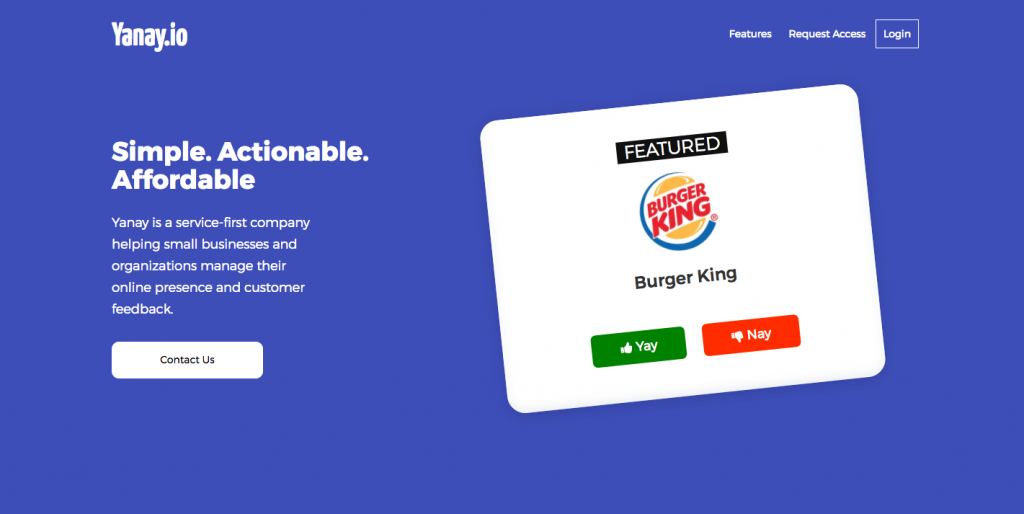
Meinhold spent the last three months researching mid-sized cities and businesses that might benefit from the platform. He’s found three customers so far, with two projects moving toward launch.
“We do know that this is a field that is exploding right now, so much so that the NASDAQ has built a sentiment analysis tool that they sell for a lot of money to big companies,” Meinhold says.
He believes the future is bright for this business sector with Gartner projections that the $655 million market in 2016 will grow to $35 billion by 2025.
Large corporations will have no problem building teams to manage sentiment analysis, but Meinhold plans to focus on small businesses and mid-sized cities.
“Either they don’t have the time to figure it out, they don’t have the knowledge, or even if they do know how to do it, they are going to have a very difficult time putting the resources toward it,” Meinhold says.
